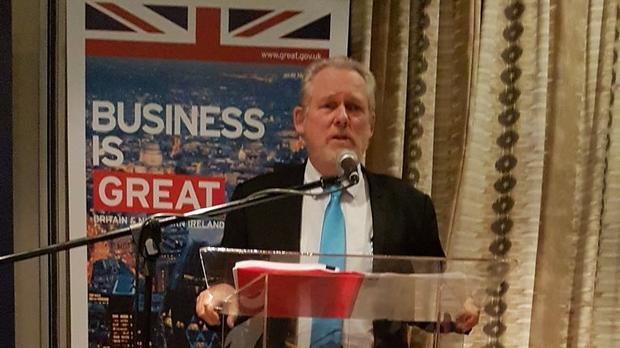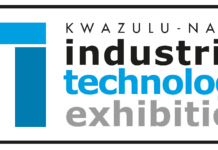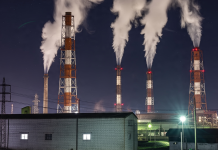According to Davies, the Economic Partnership Agreement (EPA) provides a good basis to facilitate trade between South Africa and the UK going forward.
“Our priority now is that we do not want any interruption in our trade relations with the UK. The UK government has given an indication that it will roll-over existing trade arrangements to provide continuity and predictability,” said Davies.
Davies said the EPA represents an improvement on the Trade Development Cooperation Agreement in a number of respects in that it harmonizes the trading regime between Southern Africa Customs Union (SACU) and the European Union (EU) and secures further market access in agriculture beyond the TDCA provisions. SACU is the world’s oldest customs union and predates the EU by 50 years.
“Under the EPA, we have secured an improved market access for wines and some fruit products, as well as negotiated new access for sugar and ethanol.” added Davies.
Davies pointed out that South Africa managed to gain recognition for some of our geographic indications like Rooibos, Honey bush and Karoo lamb under the EPA, as well as some wine names.
The UK remains SA’s historical and strategic trade and investment partner for South Africa and remains a key market for especially agriculture exports accounting for over 20% of SA’s exports of wine and 30% of fruit exports globally. The UK is the biggest destination in the EU for South African investment, accounting for 30% of SA investments into Europe. Bilateral investment relations between the UK and South Africa are strong with a total of 323 FDI projects from the UK to South Africa recorded between January 2003 and September 2016. These projects represent a total capital investment of R63.50 billion which is an average investment of R1.6 billion per project. According to FDI Intelligence during the period, a total of 4,857 jobs were created.
DAVIES WELCOMES GLASS HALF FULL REPORT
The Minister of Trade and Industry, Dr Rob Davies has welcomed the 2017 Annual Foreign Investment Confidence Index release by AT Kearney, a global management company.
The index, entitled the Glass Half Full, ranks South Africa in position 25 which is a ray of sunshine and a more realistic representation of the state and outlook of South Africa’s economic prospects and investment landscape. According to the report SA’s return to the index may be attributed to the short-term improvement of economic prospects and also the long-term investment potential in the country’s manufacturing sector. SA returned to the index after a twoyear absence.
Davies says that in spite of the recent downgrade, South Africa is proactively meeting investors, foreign governments and foreign ambassadors to promote South Africa as an attractive investment destination which is confirmed by the AT Kearney index.
“Investors are convinced about the long term investment prospects in South Africa. With sustained and continued improvements, SA is poised to lead one of the world’s next manufacturing hubs,” states Davies.
According to Davies, SA has performed extremely well compared to other African countries, after having the third highest drop in investment levels in 2015, according to UNCTAD’s World Investment Report, which estimated a 38% increase in investment levels for 2016.
Davies indicates that South Africa’s return to the index is remarkable and FDI inflows are estimated at $2.4 billion according to the AT Kearney index.
“InvestSA on the other hand recorded an investment pipeline of investment projects at R58 billion over the 2016/2017 financial year. Multinationals are expanding their presence in SA. For example, original equipment manufacturers (OEM’s) in the automotives sector continue to invest in new five year platforms and are embracing localization and empowerment. Siemens has achieved a BEE level 2 status and has invested in a black industrialist company through a joint venture to manufacture transformers,” highlights Davies.
Davies expressed his appreciation for these kinds of investments, saying they are welcome and provide greater impetus to industrializing approach adding to productive capacity and creating employment.
Davies adds that the quality and level of FDI inflow into the country is testament to the reforms and initiatives put in place by government to make South Africa an attractive investment destination.
“The One Stop Shop (OSS), is a focal point in government to shorten and simplify administrative procedures and guidelines for foreign companies wishing to invest in South Africa. It brings together key government role players dealing with issues from policy and regulation, permit and licensing, infrastructure and finance and incentives with a view to reducing lengthy bureaucratic procedures, reduce bottlenecks and to provide an enhanced aftercare service,” says Davies.
The OSS approach is supported by an Inter-Ministerial Committee (IMC) on Investment, chaired by President Jacob Zuma. We have enhanced our investor facilitation service with a key focus on investor retention, expansion and aftercare. South Africa is and will always be open for investment.
The index is a product of survey results based on global CEOs’ views regarding investment potential of various economies.








